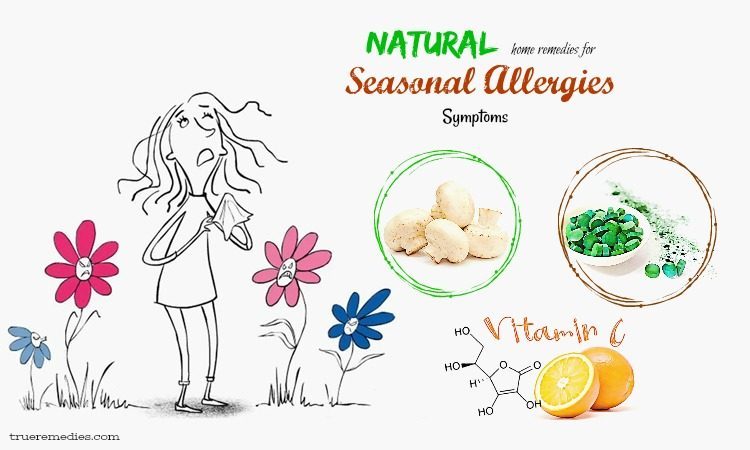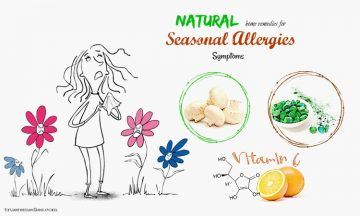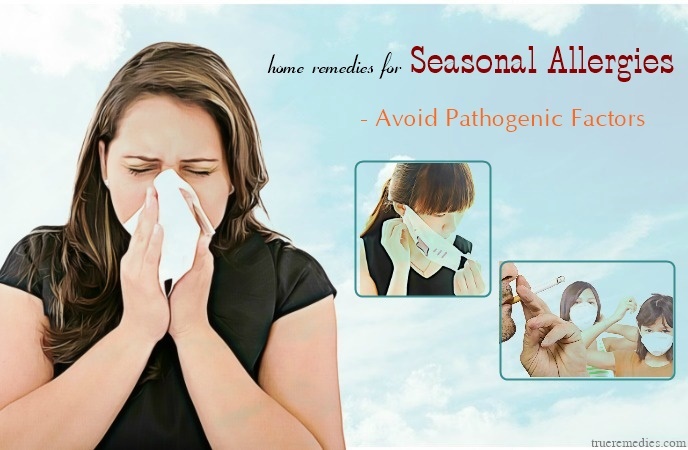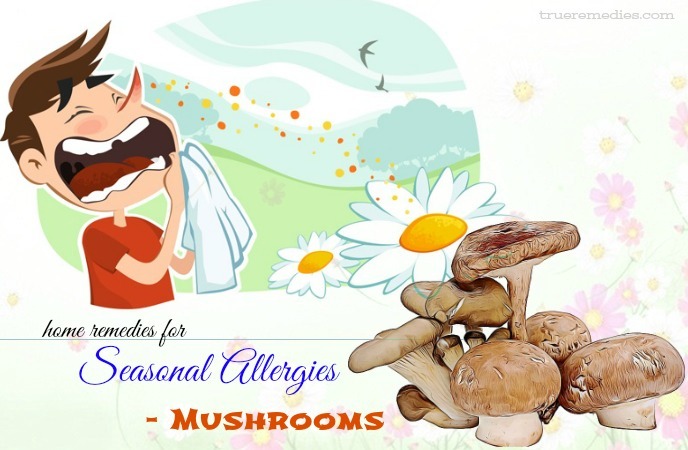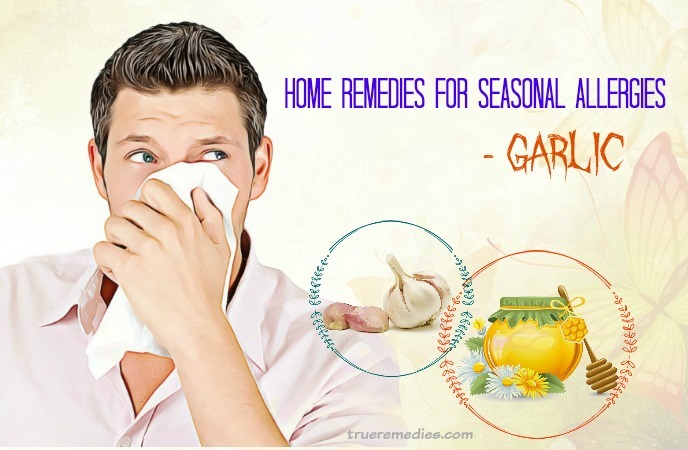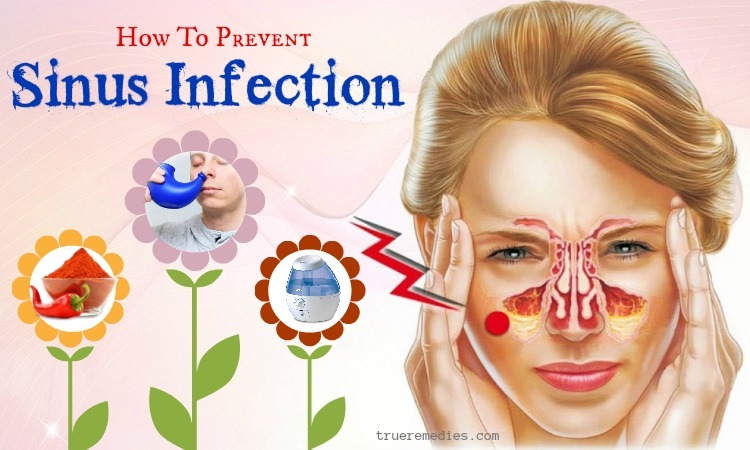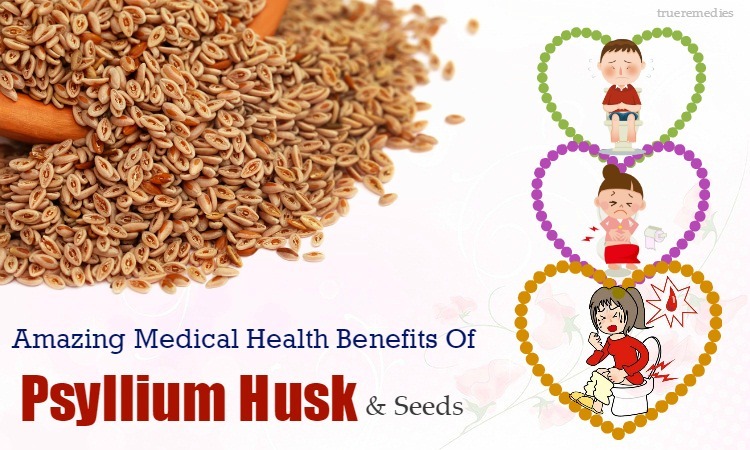Contents
Sneeze? Itching Weep? These uncomfortable symptoms all show that you have seasonal allergies. However, seasonal allergies usually only appear in the spring, and now we are in the summer? Do you know that depending on the type of allergic agent that you are sensitive to, especially dirt, mold, and animal hair, you may be affected by the disease in all seasons of the year?
Are you worried about this disease? Are you worried about how to prevent or treat seasonal allergies? Don’t worry, the following article will help you. We will provide you with home remedies which are very simple and effective. They can be done right at your home. However, before that, let’s learn some basic information about this disease to get the best view on it and also help you determine your problem to have the most appropriate treatment.
What Is Seasonal Allergies?
Spring is the season in which trees grow most strongly during the year. But this increases your risk of seasonal allergies. If you are one of thousands of seasonal allergic sufferers, especially in the spring, you will have sneezing, stuffy nose, runny nose and other uncomfortable symptoms. Seasonal allergies are also known as summer fever. However, before you replace all indoor plants with plastic and artificial grass, try the simple ways mentioned in the treatment and home remedies to control this problem.
Patients who are allergic to seasonal stimulants such as grass, weeds or pollen will experience more symptoms of the disease in the spring. Seasonal allergies are less common in winter [1]. However, different plants emit corresponding pollen at different times of the year. Depending on the cause of the allergy and where you live, you may experience seasonal allergies in any season of the year. You can also react to allergens in your home such as mold or pet hair [2]
You may be confused between seasonal allergies and allergic rhinitis.The difference here is seasonal allergy shows symptoms of seasonal allergic rhinitis, and allergic rhinitis in general can occur at any time of the year. Patients with allergic rhinitis may have reactions to any allergic factors they may experience, such as cigarette smoke, animal hair, and perfumes, although both of them are understood to be a type of nasal inflammation that occurs when the immune system reacts with the surrounding allergens, and can be caused by the same stimulant[4].
What Are Common Causes Of Seasonal Allergies?
Seasonal allergies occur when the immune system identifies a substance in the air that is considered harmless and dangerous. It reacts with the substance or causes an allergic reaction by releasing some of the histamine and other chemicals into your bloodstream [5] [6]. These chemicals produce symptoms of allergic reactions. Some common allergens of seasonal allergies may vary from season to season:
TrueRemedies Partner Solutions

Need a Help from the Leading Expert Online, Available 24/7?
They’re all here and ready to answer your questions online or by phone. Keep asking questions until you get the answer you need.
- Spring: It is believed that plants are responsible for most allergies in the spring.
- Summer: The real culprit of summer allergies is grass. According to the American Association of Asthma and Allergy, grass is the most common trigger for illness in people with summer fever.
- Autumn: Autumn is the season for daisies. Their pollen is a very common allergen and the symptoms of yellowing daisies can be particularly severe.
- Winter: Most outdoor allergens do not work in winter. As a result, cold weather has helped many people with this disease.The most common agents in winter are dampness which increases mold and dust.
Some allergens in the home are often easier to remove from your environment than outdoor pollens [7] [8].
Seasonal allergies can be inherited by sex. A recent study found that the risk of seasonal allergies in children could double if a parent of the same sex with a child had a similar illness. Professor Hasan Arshed, an allergist and immunologist at Southampton General Hospital, found that allergies such as asthma and eczema in children are related to parental sex. It is not simply genetic. Over the past few decades, we have known that seasonal allergies are inherited, and many believe that children are more genetically disturbed from their mothers because their mothers are closer to their children. But this study found that boys with seasonal allergies were genetically inherited from their father and girl with seasonal allergies due to heredity from their mother.
What Are Common Symptoms Of Seasonal Allergies?
Signs and symptoms of seasonal allergies are classified from mild to severe [9]. The most common signs may include:
- Sneeze
- Runny or stuffy nose
- Tears and itchy eyes
- Itching of the sinuses, throat or ear canal
- The ears are blocked
- Nasal fluid flow
Some other less common symptoms may include:
Some of the more severe symptoms may include infections, insomnia, difficulty in absorption and concentration, and asthma if these symptoms are not resolved. Researchers also point to the association between summer fever and asthma. If you have both summer fever and asthma, your seasonal allergies can trigger asthma attacks.
You may experience other symptoms not mentioned. If you have any questions about the signs of the disease, consult your doctor.Sometimes allergies are not diagnosed and treated because the person thinks the symptoms they encounter are a minor nuisance, not a serious disease. It is clear that in the last two decades, the number of allergic patients has increased dramatically because of lifestyle changes in hygiene as well as environmental pollution.
Who Is At High Risk Of This Problem?
Seasonal allergies are very common. However, people with weakened immune systems and people with a family history of seasonal allergies are at higher risk for this disease than others.You can control this disease by minimizing risk factors. See your doctor for more information.
When To See A Doctor?
Early diagnosis and treatment can prevent further progression and avoid emergency situations, so see your doctor as soon as possible to avoid this serious condition. If you have any of these signs or symptoms, or have any questions about this disease, please consult your doctor. The physique of each person is different, so consult your doctor to select the most suitable option.
Here are some of the most basic information you should know about seasonal allergies. Although this is not a life-threatening disease, it can be very troublesome for you. Therefore, it is very important to treat it promptly. Below, we would like to introduce you to home remedies for seasonal allergies symptoms which are simple but highly effective. Take a look on TrueRemedies.com!
Top 12 Natural Home Remedies For Seasonal Allergies Symptoms
1. Avoid Pathogenic Factors
This is the first remedy in this list of Top 12 natural Home Remedies For Seasonal Allergies Symptoms. You should take some important steps to avoid seasonal allergens, such as using air conditioners with HEPA filters to cool your home during the summer, rather than ceiling fans.Check local weather for pollen forecasts and try to stay indoors when the number of pollen is high. At times of the year when your summer fever is active, you should:
- Close the window
- Limit time outdoors
- Consider wearing a dust mask when you are outdoors, especially on windy days
- Avoid tobacco smoke as this agent can exacerbate the symptoms of the disease
Learn more: 16 Home Remedies For Nasal Congestion In Children & Adults
2. Home Remedies For Seasonal Allergies – Quercetin
Among home remedies for seasonal allergies, quercetin is one of the most effective. Quercetin is a type of flavonoid (a group of compounds that have many biological effects). It is often found in some vegetables and fruit. The main benefit of quercetin is that this flavonoid has strong antioxidants, which support the fight against free radicals. Quercetin can help boost your immune system, thereby preventing seasonal allergies, or improving your seasonal allergies problem. Here are some quercetin-rich fruits and vegetables that you must definitely try:
- Onion
Onion is rich in quercetin – a powerful antioxidant that can reduce the risk of seasonal allergies. Just as garlic, onion also contains excellent allicin compounds. The red and purple onions contain anthocyanins – powerful antioxidants. In addition to its special effects in preventing and treating seasonal allergies, quercetin found in onions as a safe food that helps prevent heart disease, boost the immune system, and reduce high blood pressure.
- Sugar Beet
Dark purple color of the sugar beet has shown its ability to treat disease. Sugar beet contains vitamins A, C, and B6. It is also a source of quercetin, folate, fiber, zeaxanthin, lutein and a variety of health promoting minerals.These are all substances that help improve the immune system of humans.
- Blueberry
These tiny fruits are filled with antioxidants such as anthocyanins, quercetin and kaempferol. They also contain many vitamins and minerals such as iron, calcium, zinc and vitamins K and C.
- Purple Cabbage
Purple cabbage contains a sulfur-like compound similar to cauliflower and kale. It contains lots of anthocyanins, flavonoids, carotenoids, and other antioxidants. Purple cabbage is also rich in fiber and vitamin K.
- Raspberry
Raspberries have many antioxidants similar to those of other purple fruits, but they also contain lots of quercetin, vitamin C, fiber, lutein, zeaxanthin, potassium and magnesium. They are considered one of the fruits that help neutralize free radicals based on their antioxidant capacity.
- Purple Cauliflower
With a higher nutrient content than the normal white cauliflower, purple cauliflower contains high amounts of anthocyanin and quercetin. It is low in calories, but high in fiber, vitamins C, K, B6, and folate. These are all things that a patient with seasonal allergies needs.
- Acai Berry
Acai Berry is a dark purple berry that is an excellent source of antiquercetin, antioxidants, amino acids, essential fatty acids, vitamins, minerals and trace elements. Acai Berry is dubbed the king fruit, the best of all fruits.
- Purple Carrots
Like purple cauliflower, this distinctive color of purple carrots comes from the anthocyanins present in them. Carrots contain high levels of quercetin, beta-carotene and vitamin A.
- Eggplant
Eggplant is one of the vegetables with high nutrient content. They contain many vitamins, K, C, B6 and many essential minerals for health. You should add eggplant to your diet to prevent or treat seasonal allergies.
3. Yogurt
This is another must-try home treatment in this list of home remedies forseasonal allergies. Nutritional value of yogurt is not less than other types of milk: every 100g of yogurt bring about 100Kcal, 3g protein, 125mg of calcium, many vitamins and minerals needed for the body. On the other hand, fermentation gives yogurt some bacteria that make up the protease enzyme, which is beneficial to the intestines, helping the digestive system healthy. Lactic acid in yogurt stimulates the increase in the intestinal tract and helps inactivating some harmful chemicals. The beneficial bacteria will help to stimulate digestion, create a sense of appetite and increase the efficiency of nutrient absorption from food.
Yogurt is also rich in Lactobacillus acidophilus. Lactobacillus acidophilus (L. acidophilus) are fermented bacteria or fungi that enter the body in controlled quantities. L. acidophilus is a beneficial bacterium that lives in the digestive tract, the excretory system and the genitals of humans but does not cause disease. Because of that, it's what your immune system really needs. L. acidophilus is commonly used in fermented milk products such as yogurt and functional foods. So, add 1-2 cups of yogurt to your body each day, and your seasonal allergies will be improved quickly.
4. Home Remedies For Seasonal Allergies – Mushrooms
This remedy is one of little – known home remedies for seasonal allergies. Many mushrooms have been used for thousands of years in Japan and China to boost the immune system and treat many diseases, including seasonal allergies. For thousands of years, we have always considered mushrooms to be a nutritious food and a precious medicine. The Pharaohs considered the mushroom as a good meal, while the Greeks believed that mushrooms helped to strengthen their warriors in battle. The Romans think the mushrooms as a gift from the gods and they ate mushrooms only during the festivities. Chinese people respect mushrooms as a health food.
Serving as a nutritious food, mushroom supplies the body with carbohydrates, fats and certain vitamins such as thiamin (B1), riboflavin (B2), niacin (B3), ascorbic acid (vitamin C). The strength of the mushrooms also comes from their ability to enhance the activity of T-cells. These cells are responsible for attacking and removing damaged cells or viruses. This will help your immune system function well and your health will be stable. Mushrooms are very nutritious and tasty, so do not remove them from your diet if you want to treat or prevent seasonal allergies.
Also read: 35 Proven Ways How To Stop Coughing At Night Naturally
5. Spirulina
The next treatment in this list of home remedies for seasonal allergies is spirulina.
Research has shown that spirulina holds promise in curing symptoms of seasonal allergies. The consumption of spirulina has been confirmed to improve symptoms including sneezing, nasal discharge, nasal congestion and itching [10].
Spirulina was discovered 3.6 billion years ago when people saw it as a green plant and could eat it to sustain life through the day. On the day they realized that just eating this plant every day, their bodies are always full of vitality and very healthy. It is also the time when scientists start to study about spirulina. The study of spirulina appears in turn and the special happened in the experiment of Professor Clenment France. After research, she made a surprising conclusion that this spirulina contains a very high nutrient content. The effect of spirulina is discovered from there.
Today spirulina is used to enhance health, boost the immune system, and enhance longevity. Spirulina is also recognized by the government. Everyone is encouraged to use it to repel illness, including seasonal allergies. Add spirulina to your body every day. What you need to do is taking 1 teaspoon of spirulina each day. It is among the most researched supplements with promising results. In accordance with the University of Maryland Medical Center, this herb can stop the release of histamine which trigger symptoms [11].
After a period of time, you will have to thanks yourself for doing this. Each person will have different doses of spirulina, so consult with your doctor to get the best dose.
6. Home Remedies For Seasonal Allergies – Omega-3 Fatty Acids
This sounds strange when it comes to home remedies forseasonal allergies, but it is very effective. Omega-3 fatty acids in fish oil are beneficial for health and are helpful in boosting your body's immune system. Because our body cannot produce omega-3 fatty acids, you have to supplement with food. Fish oil is involved in the immune system by reducing inflammation and improving the chemical composition of your blood. The vegetative cells in the body work better when the body has enough omega-3. Fish oil boosts brain development, protects cardiovascular health, fight against cancer, depression, intestinal disorders and arthritis, and it also prevents or improves a multitude of other diseases, especially seasonal allergies.
You can take omega-3 fatty acids into your body by consuming healthy meat, seafood, eggs, or fish oil supplements. Foods that contain high levels of omega-3 acids are found in meat from herbivores, cold-water seafood or eggs from naturally-chickens.
7. Vitamin C
This is one of the little-known home remedies for seasonal allergies that you should try. Vitamin C works to strengthen the immune system for the body, it is able to fight colds, fight infections. It helps the body to produce new cells and support wound healing. Vitamin C also helps prevent cancer, reduces allergies, produces anti-stress hormones and plays an important role in protecting the body from the harmful effects of pollution.
Your body can not produce vitamin C itself, so you have to supplement it through your daily diet. Some natural sources of vitamin C include berries, citrus fruits, and green leafy vegetables. However, if you have frequent have seasonal allergies, colds, bronchitis, or root canal bleeding, you can take vitamin C supplements. You must consult with your doctor to get the best dose.
8. Home Remedies For Seasonal Allergies – Vitamin D3
The right amount of vitamin D3 can help you avoid many diseases, from colds to cancer. Vitamin D3 is known as one of the “herbs” that protect the body's immune system, so it also plays an important role in the treatment of seasonal allergies. Therefore, it is very necessary for you to take vitamin D3 supplements.
Natural vitamin D3 is found in foods such as meat, eggs, milk, grains and seafood. In addition, you can sunbathe for 15 minutes daily to absorb natural sources of vitamin D3 (do not use sunscreen). For children, UVB rays in the winter are not strong enough to provide their required amount of vitamin D. So you need to add vitamin D3 to your baby from the food.
9. Zinc
The next one in this of home remedies for seasonal allergies is zinc. Zinc is essential for maintaining the health of your body. Complete zinc supplementation helps strengthen the immune system, so keeps the body from the symptoms of colds, digestive disorders, allergies, …To maximize the absorption of zinc, you should take this supplement from natural sources such as oysters, blood cockles, egg yolks, poultry, sardines, sunflower seeds, pumpkin seeds, sesame seeds, kale, and broccoli. This is very zinc-rich sources of food and is available all year round, so you should opt for the right foods for your body to treat seasonal allergies problem and stay healthy.
10. Home Remedies For Seasonal Allergies – Garlic
You have probably heard of using garlic to treat seasonal allergies very effectively, but how to use this ingredient for the most effective and safe is not known. The fact that garlic is effective in treating seasonal allergies as well as other respiratory illnesses is due to its antimicrobial and anti-inflammatory properties. The most typical of them is allicin. This is a natural antibiotic that effectively destroys pathogenicbacteria and viruses. In addition, garlic oil is rich in glycogen, aliin, and phytonoxide to help fight infections and inflammation.Garlic is also used to increase the strength of the body. It is also a natural antibiotic that enhances the immune system of humans. This is really something that a patient with seasonal allergies needs. The use of garlic to treat inflammatory skin diseases, gastrointestinal and respiratory diseases brings unexpected results.
To use garlic to treat seasonal allergies, you can apply one of the following methods:
Method 1. Just Garlic
To apply this method, please implement these steps below:
- Prepare 4-5 cloves of fresh garlic
- Squeeze the garlic to be garlic juice
- Mix water with garlic juice in a ratio of 1: 1
- Use this mixture to drink
Drink this mixture of garlic juice and water every day to boost your immune system, which will help to improve your seasonal allergies. You can also prevent this disease by applying this method. Besides, adding garlic to your daily meals is one of the simplest ways you should try.
Method 2. Garlic And Honey
Honey has excellent antiseptic and antibacterial properties, so it can help heal wounds, reduce pus, relieve pain and speed up healing.
To apply this method, please implement these steps below:
- Prepare 4-5 cloves of fresh garlic
- Squeeze the garlic to be garlic juice
- Mix honey with garlic juice in a ratio of 2: 1
- Use this mixture to apply to the affected area
Apply this method 1-2 times a day to speed up the recovery of those skin areas. Note that before doing anything, clean the affected areas very well.
11. Butterbur
Just 500 mg of butterbur each day can do a great help for seasonal allergy symptoms. Butterbur has been traditionally used to cure bronchitis, asthma, and excess mucus. Nevertheless, pregnant or breast-feeding women and young children ought not to take butterbur supplements.
12. Local Raw Honey
This is one of the most popular home remedies for seasonal allergies. It has been known to decrease allergies for a long time. When an individual eats local honey, they are thought to be ingesting the local pollen. Throughout the time, the person might become less sensitive to the pollen, thereby probably experiencing fewer seasonal allergy symptoms.
Doctors as well as researchers have not recommended a specific amount of honey that an individual ought to consume every day in order to relieve their seasonal allergy symptoms.
Note: Do not give honey to children under 1 year old because unprocessed, raw honey has a risk for botulism in infants.
People having a severe allergy to pollen could go through a serious allergic reaction called anaphylaxis after consuming honey. It could trigger extreme trouble breathing
Home Remedies For Seasonal Allergies – Lifestyle Changes For Allergy Season
In addition to applying some home remedies for seasonal allergies above, there are a number of lifestyle changes for allergy season you should consider taking, which are:
- Wear a mask on high pollen count days or the days which are especially windy or dusty. Or, if possible, limit your exposure in such days.
- Drink plenty of water: You had better drink 8-10 glasses of fresh water per day to stay hydrated. The mucus will be expelled more easily.
- Showered before your bedtime: Dust and pollen on the skin as well as in your hair, if left overnight, could worsen your symptoms.
- Wipe down the pets: Those pets spending time outdoors will come home but they are covered in pollen, so you had better wipe them down using a damp washcloth in order to help reduce your exposure to dust and pollen.
- Keep the windows and doors closed: When the levels of pollen or dust are high, you should close your windows and doors to help limit your exposure.
- Cleanse clutter: Clutter could increase the house allergens and dust, making your seasonal allergy symptoms worse. Thus, you had better eliminate clutter, particularly from your own bedroom.
The above-mentioned home remedies for seasonal allergies are claimed to be able to reduce the symptoms of this problem. Choose some of them and alternate them in your treating to see how effective they are. If you have any contributing ideas about our article of “Top 12 Natural Home Remedies For Seasonal Allergies Symptoms” introduced in Home Remedies Category, do not hesitate to drop your words below this post. We will answer as soon as we could.

